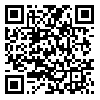1. Longstreth GF, Thompson WG, Chey WD, et al. Functional bowel disorders. Gastroenterology 2006; 130(5): 1480-91. [
PubMed] [
Google Scholar]
2. Connell A, Hilton C, Irvine G, et al. Variation of bowel habit in two population samples. BMJ 1965; 2(5470): 1095-9. [
PubMed] [
Google Scholar]
3. Saito YA, Schoenfeld P, Locke GR. The epidemiology of irritable bowel syndrome in North America: a systematic review. Am J Gastroenterol 2002; 97(8): 1910-5. [
PubMed] [
Google Scholar]
4. Swarbrick E, Bat L, Hegarty J, et al. Site of pain from the irritable bowel. The Lancet 1980; 316(8192): 443-6. [
PubMed] [
Google Scholar]
5. Solhpour A, Pourhoseingholi MA, Soltani F, et al. Gastro-oesophageal reflux disease and irritable bowel syndrome: a significant association in an Iranian population. Eur J Gastroenterol Hepatol 2008; 20(8): 719-25. [
PubMed] [
Google Scholar]
6. Masand PS, Keuthen NJ, Gupta S, et al. Prevalence of irritable bowel syndrome in obsessive-compulsive disorder. CNS Spectr 2006; 11(1): 21-5. [
PubMed] [
Google Scholar]
7. Piche T, Saint-Paul MC, Dainese R, et al. Mast cells and cellularity of the colonic mucosa correlated with fatigue and depression in irritable bowel syndrome. Gut 2008; 57(4): 468-73. [
PubMed] [
Google Scholar]
8. Dunlop SP, Jenkins D, Spiller RC. Distinctive clinical, psychological, and histological features of postinfective irritable bowel syndrome. Am J Gastroenterol 2003; 98(7): 1578-83. [
PubMed] [
Google Scholar]
9. Lackner JM, Gurtman MB. Patterns of interpersonal problems in irritable bowel syndrome patients: a circumplex analysis. J Psychosom Res 2005; 58(6): 523-32. [
PubMed] [
Google Scholar]
10. Sadock BJ, Sadock VA. Kaplan and Sadock's Synopsis of Psychiatry, Behavioral Sciences/Clinical Psychiatry. 10th ed. New York: Wolters Kluwer, 2007, 604-12. [
Google Scholar]
11. Nicholl BI, Halder SL, Macfarlane GJ, et al. Psychosocial risk markers for new onset irritable bowel syndrome-results of a large prospective population-based study. Pain 2008; 137(1): 147-55. [
PubMed] [
Google Scholar]
12. Blanchard EB, Scharff L. Psychosocial aspects of assessment and treatment of irritable bowel syndrome in adults and recurrent abdominal pain in children. J Consult Clin Psychol 2002; 70(3): 725-38. [
PubMed] [
Google Scholar]
13. Bennett E, Piesse C, Palmer K, et al. Functional gastrointestinal disorders: psychological, social, and somatic features. Gut 1998; 42(3): 414-20. [
PubMed] [
Google Scholar]
14. Talley N, Boyce P, Jones M. Is the association between irritable bowel syndrome and abuse explained by neuroticism? A population based study. Gut 1998; 42(1): 47-53. [
PubMed] [
Google Scholar]
15. Mirzaei Alavijeh M, NasirZadeh M, Mostafei M, et al. Anxiety Prevalence Survey of 144 Students from Payam-e-Nour Boiene Mieandasht University (Isfahan) and its Relationship with Irritable Bowel Syndrome in 2011. Govaresh 2011; 16(2): 83-90. (Persian) [
Google Scholar]
16. Stanley J, Stuart AD, Pretorius HG. Irritable bowel syndrome: Personality and health behaviours: A biopsychosocial approach. Health SA gesondheid 1999; 4(1): 10-8. [
PubMed] [
Google Scholar]
17. Welgan P, Meshkinpour H, Ma L. Role of anger in antral motor activity in irritable bowel syndrome. Digestive Diseases and Sciences 2000; 45(2): 248-51. [
PubMed] [
Google Scholar]
18. Feldman M, Friedman LS, Brandt LJ. Sleisenger and Fordtran's gastrointestinal and liver disease: pathophysiology/diagnosis/managemn. 19th ed. Esevier: Australia, 2010, 11. [
Google Scholar]
19. MELTON LJ. Relation among personality and symptoms in nonulcer dyspepsia and the irritable bowel syndrome. Gastroenterology 1990; 99(2) :327-33. [
PubMed] [
Google Scholar]
20. Farnam A, Somi MH, Sarami F, et al. Personality factors and profiles in variants of irritable bowel syndrome. World J Gastroenterol 2007; 13(47): 6414-8. [
PubMed] [
Google Scholar]
21. Roberton T, Daffern M, Bucks RS. Emotion regulation and aggression. Aggression Violent Behav 2012; 17(1): 72-82. [
Google Scholar]
22. Szczygieł D, Buczny J, Bazińska R. Emotion regulation and emotional information processing: The moderating effect of emotional awareness. Personality Indivi Diff 2012; 52(3): 433-7. [
Google Scholar]
23. Oettle G. Effect of moderate exercise on bowel habit. Gut 1991; 32(8): 941-4. [
PubMed] [
Google Scholar]
24. Crane C, Martin M, Johnston D, et al. Does depression influence symptom severity in irritable bowel syndrome? Case study of a patient with irritable bowel syndrome and bipolar disorder. Psychosomatic Med 2003; 65(5): 919-23. [
PubMed] [
Google Scholar]
25. Gross JJ, John OP. Mapping the domain of expressivity: multimethod evidence for a hierarchical model. Journal of Personality and Social Psychology 1998; 74(1): 170. [
PubMed] [
Google Scholar]
26. Porcelli P, Affatati V, Bellomo A, et al. Alexithymia and psychopathology in patients with psychiatric and functional gastrointestinal disorders. Psychotherapy Psychosomatics 2004; 73(2): 84-91. [
PubMed] [
Google Scholar]
27. Sayar K, Solmaz M, Trablus S, et al. Alexithymia in irritable bowel syndrome. Turkish Journal of Psychiatry 2000; 11(3): 190-7. [
Google Scholar]
28. Mayer EA, Naliboff BD, Chang L, et al. V. Stress and irritable bowel syndrome. Am J Physiol Gastrointest Liver Physiol 2001; 280(4): G519-G524. [
PubMed] [
Google Scholar]
29. Chang L, Mayer EA, Labus JS, et al. Effect of sex on perception of rectosigmoid stimuli in irritable bowel syndrome. Am J Physiol Regulatory Integrative Comparative Physiol 2006; 291(2): R277-R284. [
PubMed] [
Google Scholar]
30. McCrae RR, Costa Jr PT. Rotation to maximize the construct validity of factors in the NEO Personality Inventory. Multivariate Behavioral Research 1989; 24(1): 107-24. [
PubMed] [
Google Scholar]
31. Williams KE, Chambless DL, Ahrens A. Are emotions frightening? An extension of the fear of fear construct. Behaviour Research and Therapy 1997; 35(3): 239-48. [
PubMed] [
Google Scholar]







